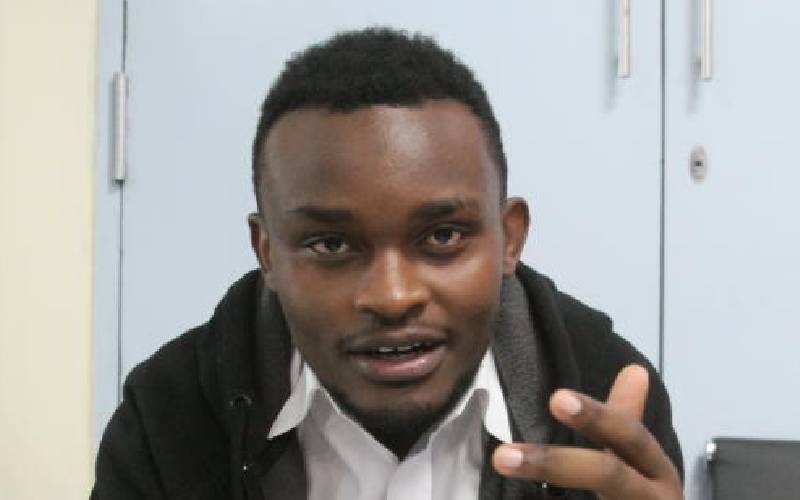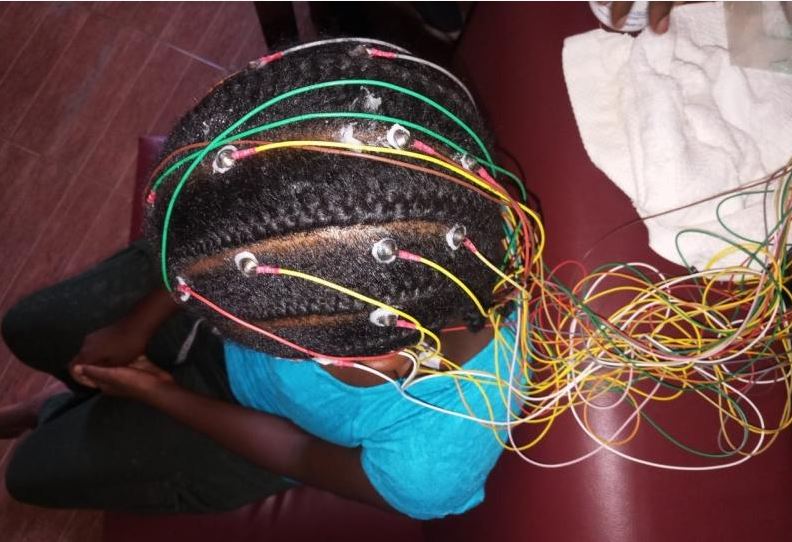
DJ Max's first seizure was in Class 8 in 2008. [Courtesy]
Esther Dzomb, from Msabaha in Malindi, Kilifi County, had her first epilepsy attack in Class Six. The 31-year-old mother of two recalls that the seizure attack was “around quarter past midnight.
When I regained consciousness, I had a bad headache and bruises in my mouth. I was surrounded by people. My sister, with whom I shared a bed, had panicked, screamed, and called neighbours.”
That seizure changed her life.
People suggested different modes of treatment. Some even claimed she was bewitched. “We went to KEMRI, Kilifi. We tried preachers and even traditional healers, but there was no change. I was devastated,” she narrates, adding that stigma from friends and relatives included thinking she had mental problems.
Her family has been chipping in to help her buy her monthly drugs, but “I wish the drugs could be affordable,” says Esther. “I take four pills, from two per day when I started. I pray the seizures never return. From more than two seizures a day, I have had no seizures in six months.”
People think the epileptic cannot do daily chores, but Esther attends goes to her tailoring shop and cassava shamba and “the only thing I can’t do is fetch and carry water because I am not supposed to overwhelm my head. So I pay someone and that’s another cost.”

Esther Dzombo at her shop. [Courtesy]
The story is the same for DJ Max (Maxwell Nzai). His first seizure was in Class 8 in 2008. It also happened around midnight, “ and when I regained consciousness, my mother was crying.
She thought I had died. I had a terrible headache and I had bruises in my mouth since I bit myself during the seizure,” recalls the 26-year-old.
DJ Max explains that being a candidate came with revisions and the seizures were caused by fatigue. A neighbour even applied oil on him claiming he was bewitched “but I wasn’t healed.”
During another seizure, people thought it was the side-effect of hard drugs. Most of his attacks were usually at home after work. Now he hasn’t had a seizure in almost four months, and “as long as I take drugs on time and rest, I will be okay.”
Eddy Chengo, an epileptologist, says epilepsy is a brain condition characterised by recurrent and provoked seizures.
“When there’s miscommunication in the nerve cells, a message is sent in a wrong way and you have a seizure. It can present abnormal behaviour, abnormal sensation and abnormal movement. There are many types of epilepsies depending on the side that is affected.”
Kisumu is another county with rising epilepsy cases, and most are caused by falling on the head during birth or from accidents during youth or adulthood, undocumented strokes, brain tumors, severe malaria, bacterial and viral infections affecting the brain, meningitis and boda boda accidents, according to Dr Symon Kariuki, the head of Neurosciences at the Kemri-Welcome Trust in Kilifi.
“I do not understand how to care for her, as her condition gets worse unpredictably,” admits Linda Akinyi, whose daughter Mary Aketch suffers epilepsy but cannot afford the drugs most of the time. “Without the medicines, she has frequent seizures and her condition worsens.”

There are many types of epilepsies depending on the side that is affected. [Courtesy]
Kisumu County Director of Health and Sanitation Dr Fredrick Oluoch says they are increasing awareness and debunking myths to have people with epilepsy access medical care.
Chengo says drugs are prescribed depending on the seizure type identified through detailed clinical history and an EEG (Electroencephalogram) test that checks the brain wave activity for type of epilepsy.
In Kilifi, the biggest challenge has been people linking epilepsy to witchcraft, according to Dr Kariuki. He says perceptions only began changing when they roped in traditional healers to sensitise residents as they received more clients than hospitals.
Kariuki, who is also chairperson of the National Epileptic Committee, says limited supply of anti-epileptic drugs and scanty national data on epilepsy burden are the other challenges.
Kilifi County Director of Health and Sanitation Vincent Iduri said with the huge burden, they had expanded the Mental Health Unit “to offer counseling and free medication” despite shortage of anti-epileptic drugs.
 The Standard Group Plc is a multi-media organization with investments in media
platforms spanning newspaper print
operations, television, radio broadcasting, digital and online services. The
Standard Group is recognized as a
leading multi-media house in Kenya with a key influence in matters of national
and international interest.
The Standard Group Plc is a multi-media organization with investments in media
platforms spanning newspaper print
operations, television, radio broadcasting, digital and online services. The
Standard Group is recognized as a
leading multi-media house in Kenya with a key influence in matters of national
and international interest.











